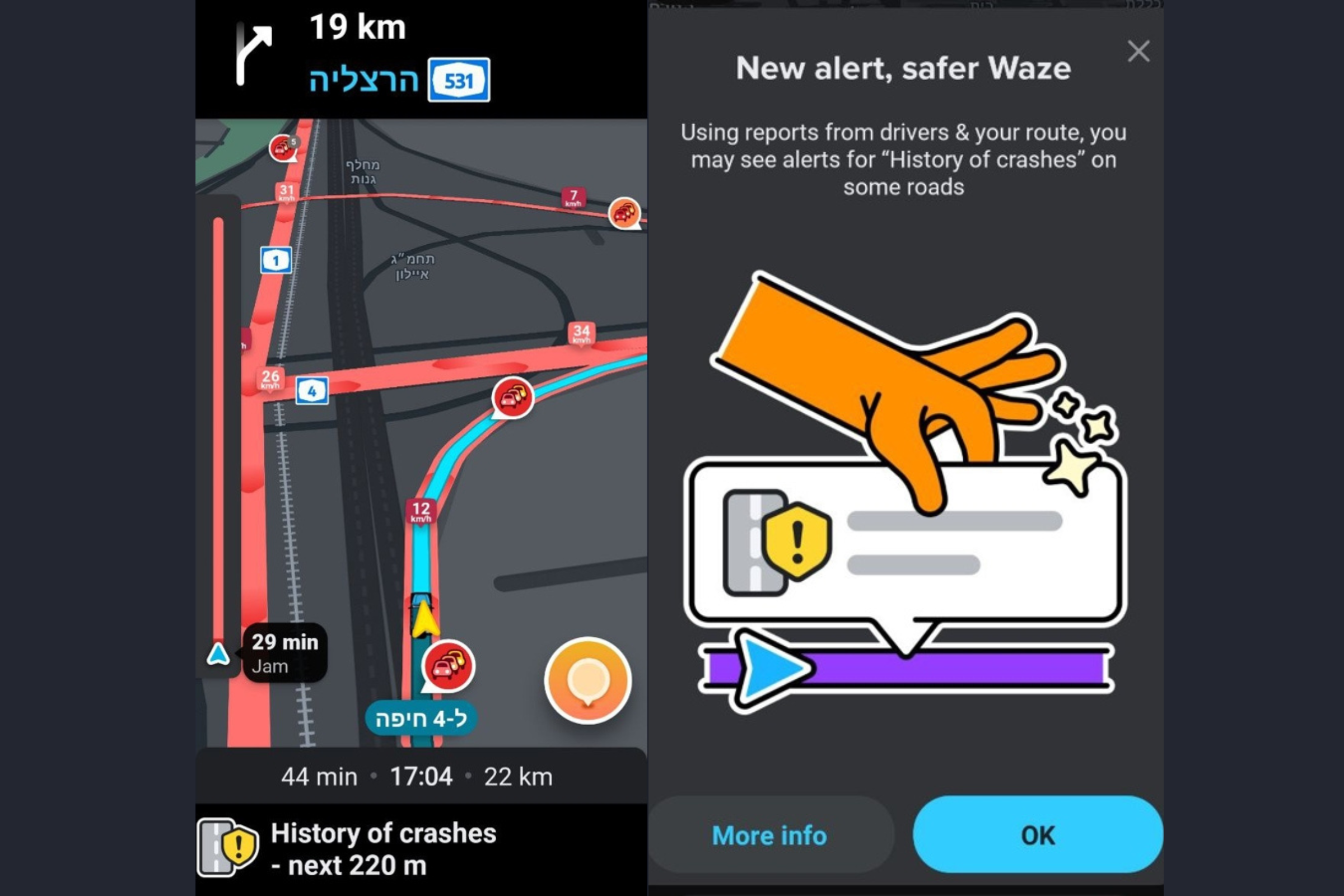Despite Google Maps and Apple Maps usually being front and center when it comes to navigation software, there is a "small" community of users that prefer to use Waze. The navigation app offers plenty of unique properties like navigation instructions spoken by celebrities and probably its best feature, contributions from the community that make the maps better and better every single day. Now it looks like Waze is testing a new feature that could help drivers steer clear of dangerous roads.
According to tech news site Geektime by way of The Verge, Waze is currently testing a way to alert drivers when they are on dangerous roads. By dangerous, it would mean roads that have a high history of crashes and accidents. The new beta will indicate these roads by marking them in red and will also give a notification as well. The outlet reports that while convenient, it doesn't seem to indicate these kinds problems when traveling on routes that are normally traveled.
If you think this kind of indicator might cause more stress then necessary, you do have the option to turn it off. Although this feature is currently in beta, it will most likely arrive to the public soon. At the top of the month we reported that Google would merge its Waze and Maps teams in order to cut costs. While it does seem like business as usual, there are fears that lines might blur between the two products in the future. At the time, we reached out for comment from Google and were given this response:
“Google remains deeply committed to Waze’s unique brand, its beloved app and its thriving community of volunteers and users. By bringing the Waze team into Geo’s portfolio of real-world mapping products, like Google Maps, Google Earth and Street View, the teams will benefit from further increased technical collaboration while giving users the same experiences they know and love.”
If you're a loyal Waze user, let's hope that Google does remain committed to Waze's unique brand, so that the good times can continue, and we can get more innovative mapping solutions in the future.
Source: Geektime
Via: The Verge

